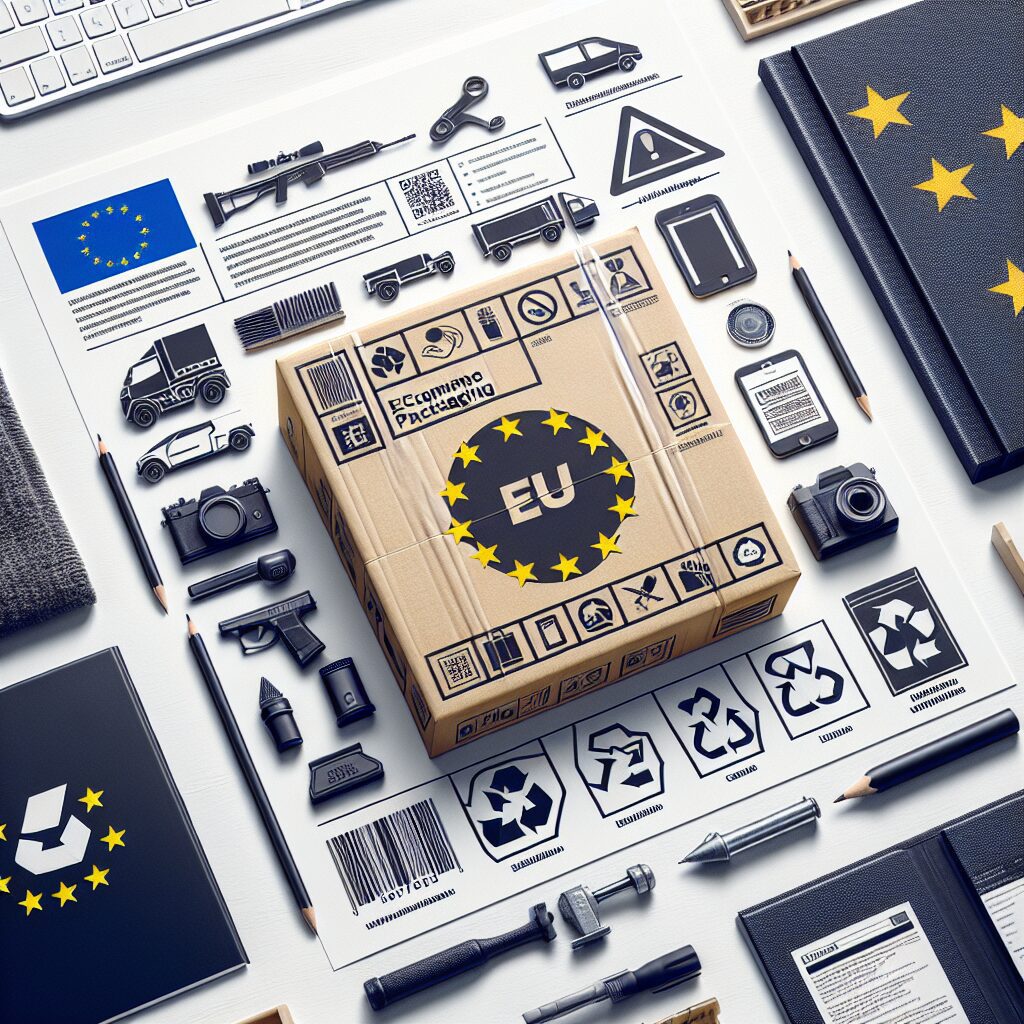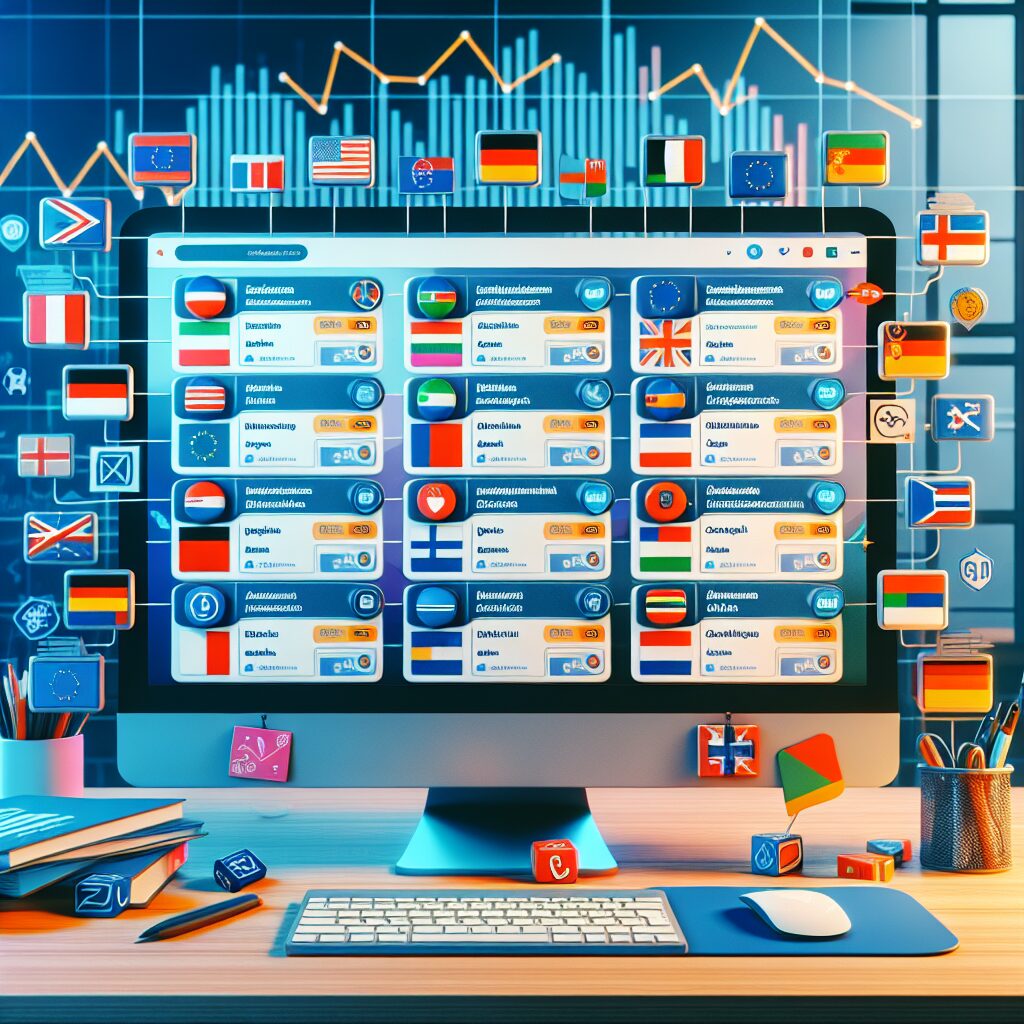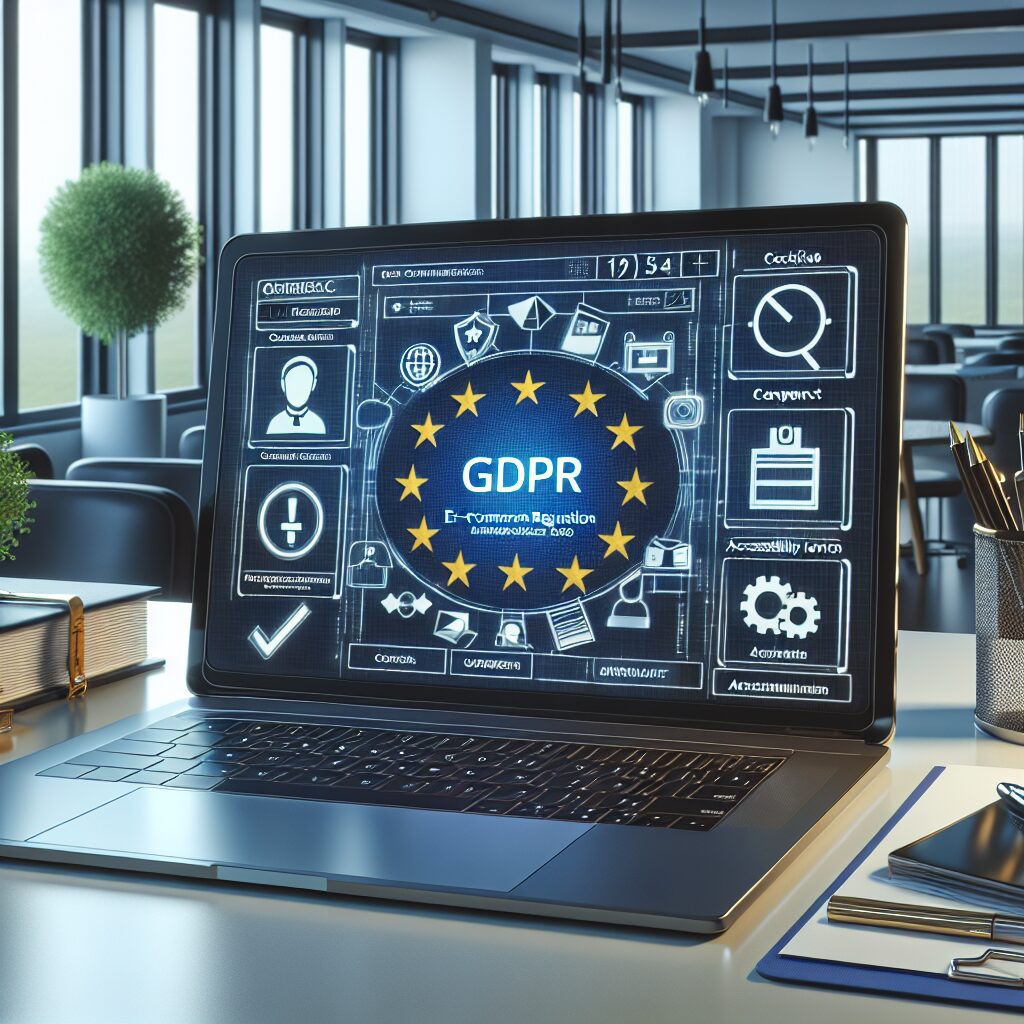About eldris
At Eldris, we automate SEO, multilingual site expansion, and EU compliance for brands scaling across Europe. Our AI-powered platform handles everything from content publishing to regulatory docs—so you don’t have to.
In This Article
- Register for EPR in each EU country you sell into with packaged goods.
- Add country-specific recycling symbols and labelling in the local language.
- Track packaging weights and recycling data by product and shipment.
- Use automation plugins in Shopify or WooCommerce to simplify compliance.
- Dropshippers must also comply — ensure supplier accountability.
- Deadline for most obligations starts in January 2025 — act now.
Overview of the 2025 EU Packaging Regulations
What Sellers Need to Know
The newly updated EU packaging laws are set to reshape how online sellers think about shipping, labelling and environmental stewardship. Coming into effect in 2025, these laws are part of the wider European Green Deal and are spearheaded by the Packaging and Packaging Waste Directive (PPWD), soon to be succeeded by the ambitious Packaging and Packaging Waste Regulation (PPWR).
The primary objective of these laws is to reduce packaging waste, improve recyclability, and harmonise requirements across the EU. Sellers, especially on platforms like Shopify and WooCommerce, must proactively adapt their business operations to comply with these rules — or risk substantial penalties. The legislation affects everything from material types and size optimisation to country-specific registration requirements under Extended Producer Responsibility (EPR). Understanding EU packaging laws early offers a distinct advantage in strategic planning, cost forecasting, and supplier selection.

Understanding EPR Compliance per Country
Where and How to Register
Extended Producer Responsibility (EPR) is a core pillar of the EU’s packaging laws. Under EPR, producers — which includes eCommerce sellers who place packaged goods onto EU markets — must take financial and organisational responsibility for the entire lifecycle of their product packaging.
The registration process varies per country, and sellers must register in each member state where they ship products. For instance:
- Germany: Sellers must register with the Central Packaging Register (Zentrale Stelle) and comply with the VerpackG law.
- France: Registration with a Producer Responsibility Organisation (PRO) like Citeo is mandatory.
- Italy: Requires compliance via CONAI (National Packaging Consortium).
- Spain: Sellers must register through the Ministry for the Ecological Transition and pay eco-modulated fees based on recyclability.
Every country has its own EPR schemes, registration portals and ecological fees. Managing this patchwork can be daunting, which is why many Shopify and WooCommerce sellers opt to work with compliance consultancies or third-party fulfilment partners. Automation tools, discussed later, can help simplify tracking and reporting obligations across borders.
“Registering for EPR in every EU country you sell to isn’t just best practice — it’s legally required. Proper setup now prevents regulatory headaches in 2025.”
How Shopify Stores Handle EU Packaging Laws
Shopify does not currently offer native support for tracking EPR compliance or generating packaging reports, but sellers are not left without options. Various third-party apps can help merchants generate packaging declarations, manage recycling fees, and sync data with government platforms.
Merchants must first audit their entire supply chain — from product sourcing to packaging material — and document key packaging data points, such as weight, composition, recyclability, and volume metrics. Shopify flows and tags can assist in flagging non-compliant SKUs and automating packaging data entry at checkout.
To stay compliant, make use of applications like EPR Compliance Manager, EcoCart, and Planet, which integrate well with Shopify’s ecosystem. These tools facilitate waste tracking, offer customer-facing sustainability reports, and streamline the documentation necessary for different jurisdictions. Learn more about EU Compliance for Ecommerce Platforms
WooCommerce Compatibility with EU Requirements
WooCommerce stores face unique challenges due to the platform’s open-source nature. Compliance is highly reliant on plugins and manual configuration. Thankfully, several tools can be integrated to handle the complexities of EU packaging laws.
For example, the “EU Transit Packing Compliance” plugin enables businesses to assign specific packaging metrics to products, auto-generate compliance declarations and even sync reports with EPR agencies when properly configured. Coupled with an ERP or shipping software, WooCommerce can become just as functional as hosted platforms for navigating packaging regulations.
Merchants using WooCommerce are urged to proactively engage with developers to ensure their store’s packaging outputs are accurately measured and documented. Due to absence of centralised support, compliance efforts must be tailored business by business.
Labeling, Recycling & Language Mandates Explained
Labelling requirements are becoming increasingly strict under EU packaging laws. Sellers must ensure that their packaging includes specific recycling symbols, disposal instructions, and country-specific language compliance.
For example, in France, recycling instructions must be printed in French — even if the product is identical across markets. In Italy, all packaging must be marked with information identifying the packaging material, using alphanumerical codes made mandatory by Legislative Decree No. 116/2020.
Moreover, some countries require Triman logos (France) or “green dot” symbols (Germany) to be visible on packaging. The placement, legibility, and durability of these labels all matter. Failure to follow labelling mandates could lead to your products being blocked at customs or removed from shelves.
It is advisable to develop packaging in a modular format where print zones differ per country, avoiding the need to design entirely new packs for each jurisdiction.
Fines & Penalties for Non-Compliance
Non-compliance with EU packaging laws can result in severe financial and legal repercussions. Companies that fail to register or misreport their packaging data may face fines ranging from €5,000 to over €200,000, depending on the country and severity of the violation.
Enforcement mechanisms are tightening in 2025. For example, Germany’s Zentrale Stelle has increased cross-border controls with mandatory LUCID registration. France enlists customs authorities to monitor EPR status. In Italy, distributing products without correct material codes can result in seizure and fines.
Some EU nations may also restrict access to marketplaces for non-compliant sellers. Marketplaces like Amazon are already enforcing EPR validation for sellers in France and Germany, requiring producers to enter LUCID and Citeo registration numbers during account setup.
Practical Steps to Achieve EPR Registration
Securing compliance with EU packaging laws is a multi-step process. Here’s how merchants can begin their journey:
- Identify Producer Responsibility: As an importer or brand-owner, confirm your status as a ‘producer’ under EPR definitions.
- Conduct a Packaging Audit: Catalogue all material types, weights, and recyclability levels for each SKU and point-of-sale material.
- Register with Local Authorities: Enrol with EPR schemes such as Citeo (France), LUCID (Germany), and CONAI (Italy).
- Apply Labels & Logos: Update packaging to reflect correct national symbols and disposal instructions.
- Track and Report Volumes: Implement systems to periodically declare packaging outputs to relevant authorities.
It may also be useful to partner with a fulfilment provider or lawyer familiar with EU environmental legislation. EU packaging regulations for online sellers
Best Automation Tools for Legal Packaging Compliance
Handling compliance manually is no longer viable, especially for growing merchants selling across multiple EU countries. Fortunately, several automation tools exist to alleviate the burden:
- EcoCart: Adds sustainability data at checkout and supports carbon offsetting and packaging analytics.
- EPR Compliance Manager: Centralises EPR registrations and automates submissions in multiple languages.
- Planet (Shopify): Details packaging weights and offers advanced waste tracking dashboards.
- Packaging Compliance Tracker for WooCommerce: A plugin designed to calculate and submit packaging metrics from within the WordPress admin panel.
These plugins offer templates for french and german labelling requirements, warnings for non-compliant material codes, and downloadable EPR declarations accepted by most EU authorities.
Impact of New Laws on Dropshipping Models
For dropshipping businesses, EU packaging laws present unique challenges. Since shops are often selling goods fulfilled by third-party factories or suppliers, it’s difficult to assert control over packaging specifications.
Under EU law, if you’re the first to place a product onto the EU market, you’re deemed the producer — even if you never handle the product. This applies to dropshipped items originating outside the EU. Therefore, sellers must ensure that their supplier follows compliant practices with material usage, labelling, and recyclable content.
One solution is to ask for documentation upfront, such as proof of packaging certificates or pre-labelled compliant packagings. Alternatively, route products through specialised fulfilment centres located within the EU that can repackage as needed. Read a related article
Timelines: 2025 Deadlines and Planning Ahead
The new EU packaging laws begin enforcement across most of the bloc from January 1st, 2025. However, deadlines for specific requirements vary depending on the country:
- Germany: LUCID registration must be completed by October 2024 to avoid disruption by January.
- France: Packaging declarations must be filed quarterly, with annual summaries beginning 2025.
- Belgium: Multi-material items must follow the SIX logo mandates starting from March 2025.
Ahead of these deadlines, businesses should begin by securing their EPR numbers, updating packaging labels, and preparing the first declarations. Timely action ensures legal peace of mind and avoids costly stoppages.
Conclusion & Action Plan for Merchants
EU packaging laws may appear burdensome, but they offer an opportunity for brands to become truly sustainable while enhancing trust with eco-conscious customers. With enforcement arriving soon, delay is not an option.
Shopify and WooCommerce businesses that start early will have time to refine logistics, test automation tools, and avoid financial penalties. The key to success lies in solid planning, cross-border registration, regular data tracking, and consistent audit trails for your entire packaging portfolio.
By embracing compliance as a competitive edge, you not only future-proof your eCommerce business but also take a meaningful step towards environmental responsibility. Begin your action plan today — because in 2025, compliance won’t be optional; it will be business-critical.
Great guide on eu-packaging-laws-shopify-woocommerce-requirements – Community Feedback
What are the main EU packaging rules for Shopify/WooCommerce stores?
EU packaging rules require clear labelling, recycling-friendly packages, registering for EPR, and compliance with each country’s reporting and language mandates from 2025 onwards.
Do I need to register for EPR in every EU country I sell to?
Typically, you must register for EPR compliance in every EU member state where your business ships goods and packages directly, following each country’s rules.
What penalties can I face for non-compliance with EU packaging laws?
Non-compliance can lead to fines, sales bans, blocks at customs, and significant legal risks for your business, as authorities are increasing enforcement in 2025.








